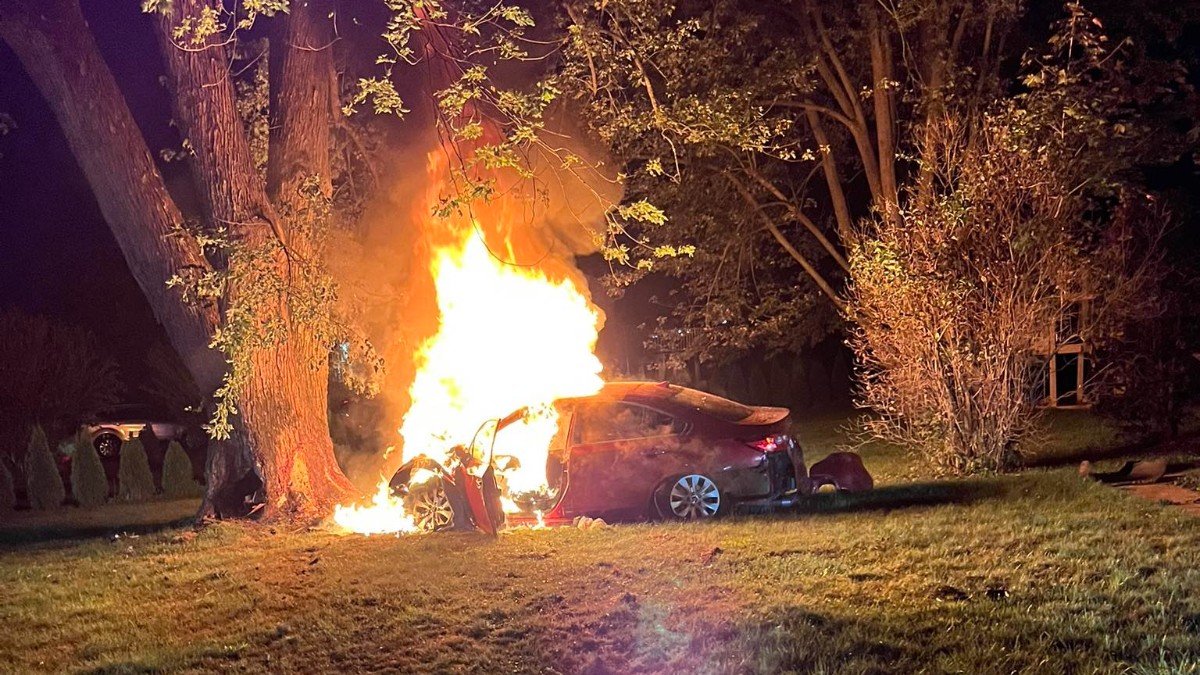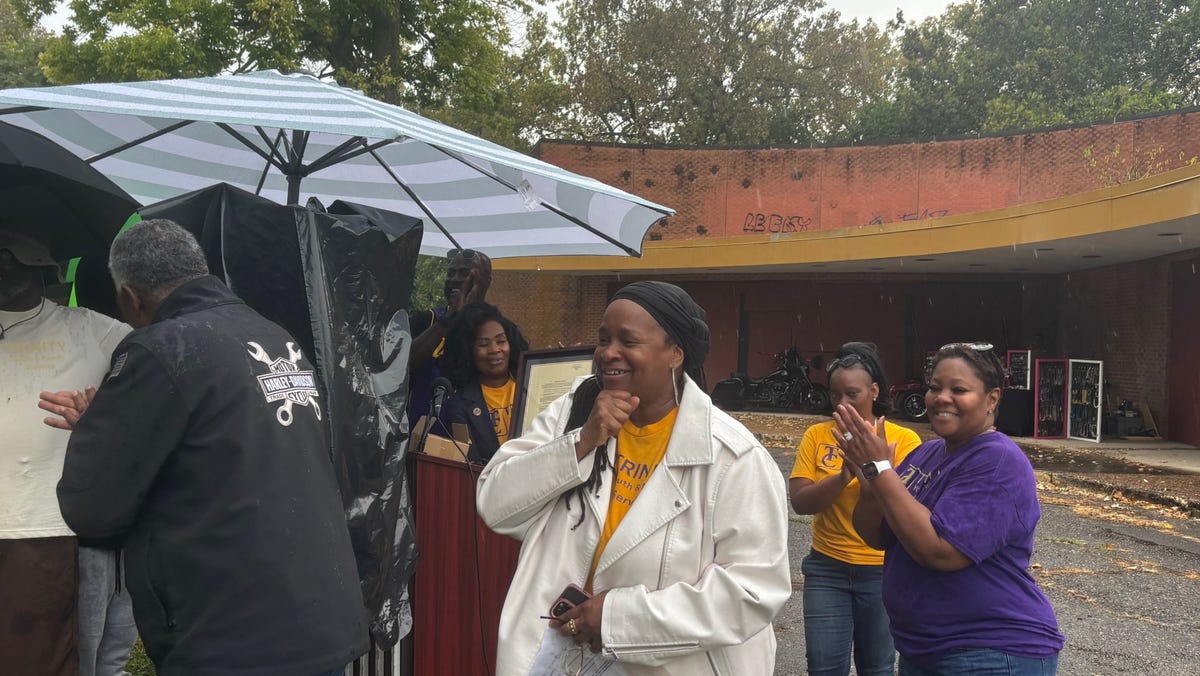Connecticut
CT recycled 200,000 mattresses in 2022. What it cost, what it saved and its impact on take-out

After spending hundreds — if not thousands — of dollars for a new mattress, a good night’s sleep is likely more on the minds of shoppers in Connecticut than the recycling fee tacked onto the purchase.
But the $11.75 fee is helping finance a growing slice of Connecticut’s recycling industry that is keeping hundreds of thousands of discarded mattresses out of landfills and from clogging up trash-to-energy plants each year.
Hundreds of thousands of pounds of steel coils, foam and wood frames are being harvested annually from ripped apart mattresses at two plants in Connecticut, later sold to make everything from carpet padding and metal alloys for construction materials to new uses such as black plastic containers for take-out meals.
In 2022, Connecticut recycled 200,000 mattresses — primarily from consumers, but also from hotels, hospitals and colleges — and is on a pace to meet or exceed that number this year, according to the Mattress Recycling Council, a nonprofit that oversees the recycling program.
Daniel McGowan, the council’s program coordinator for the Northeast, said the recycling program — now in its eighth year — is good for the environment. But it also responds to increasing awareness among some consumers who want what they buy to be reused later, either recycled or upcycled.
“We have a research department that’s really looking at the sustainability of mattresses, what is coming down the pike as far as components,” McGowan said. “Consumers want sustainability, they want to make sure what they buy will be recyclable.”
Connecticut was the first state in the nation to pass a mattress recycling law, propelled, in large part, by the closing of the Hartford landfill. The closing raised the prospect of the city having to pay hundreds of thousands of dollars each year to dispose of old mattresses.
Since the law took effect in 2015 — the statute modeled after a similar one for paint a few years before — 1.5 million mattresses have been recycled and, if laid end-to-end, would stretch from northern Maine to Key West.
Despite those numbers, Connecticut’s lead in mattress recycling has been slow to take hold in other states. Rhode Island, California and most recently, Oregon now have mattress recycling programs on the books — meaning the vast majority of mattresses are still being tossed into landfills nationwide.
State environmental officials in Connecticut say they have fielded calls from a number of states interested in mattress recycling, including New York, Massachusetts, Minnesota and Missouri.
But Tom Metzner, environmental analyst at the Connecticut Department of Energy and Environmental Protection, said until more states get into mattress recycling, innovations in recycling and the products that can be created will be held back. The relatively low volumes won’t justify the money that needs to be invested, Metzner said.
‘Difficult to manage’
Connecticut’s law dramatically changed how consumers dispose of mattresses. Prior to 2015, consumers typically paid a fee at a transfer station and their town or city usually dumped the mattresses in with other trash, pushing up the municipality’s overall waste disposal costs.
Now, consumers can drop off old mattresses at no charge and municipalities don’t have to pay to have the mattresses transported for recycling, Metzner said.

Some cities, like Hartford, collect mattresses curbside, Metzner said, and transport them to a recycling plant.
Towns and cities are saving an estimated $1.2 million annually as a result of the mattress recycling program, Metzner said, noting the estimate is conservative.
If consumers want to avoid the hassle of transporting an old mattress for disposal, some retailers offer to take old mattresses away, but are allowed to charge for that service. But the retailer can’t represent the fee as one tied to recycling, Metzner said.
At the heart of the mattress recycling program is the policy of “extended producer responsibility” that requires makers of products to be responsible for management from the time they are sold until they are discarded. In Connecticut, similar programs exist for electronics and more recently, tires and gas cylinders.
The $11.75 fee paid at the time of a mattress purchase goes back to the industry by way of the mattress council, which is then tasked with the administering the recycling program and promoting educational programs. Educational programs include how to recycle and extend the life of a mattress.
Consumers only pay the fee if they buy a mattress, rather than a cost that is shouldered by everyone in, say, a broad based property tax, Metzner said.
“To me, as a policy person, I think it highlights good policy for materials that can be difficult to manage,” Metzner said. “And now, we’re getting better environmental outcomes and we’re saving the towns money and we’re creating some jobs and investment.”
Homegrown innovation
At Willimantic Waste — one of two mattress recycling plants in Connecticut, the other being in Bridgeport — 21 full-time workers work on tearing apart discarded mattresses, using basic tools such as box cutters.

Mattress recycling is attractive as a business in Connecticut because the recycler not only gets a share of the fees from consumers but the proceeds from the sale of raw materials — steel, cotton, foam and wood — that are reclaimed from mattresses.
Wood goes through a chipper and is sold as fuel to a renewable energy facility in Plainfield.
So far this year, the Willimantic plant has reclaimed 1,009 tons of metal, 467 tons of foam, 642 tons of wood and 25 tons of cotton from discarded mattresses.
The plant — acquired by Rutland, VT-based waste management giant Casella Waste Systems, Inc. in 2021 — can recycle 70 mattresses an hour and is developing ways to streamline the process and recycle more of the mattress. Currently about 75% of a mattress can be recycled, according to Mike Crowell, Casella’s market manager in the Willimantic area.
One innovation is a homegrown shearing machine — powered by an old truck compressor — that separates a box spring from a wood frame in 5 seconds. If that was done by hand, the dismantling may have taken as much as 10 minutes, Crowell said, on a recent tour of the plant.
Casella sees a strong market for mattress recycling, recently investing in a cutting-edge technology that that separates coils that are individually sheathed in polypropylene plastic.
The automated system, which just arrived in Willimantic and is now being tested, will allow Casella to deal with what are known as “pocket coils,” which were being thrown out as not being recyclable.

“So you have brilliant engineers across the country, across the world, that really put their heads together to say, ‘How can we recycle this pocket coil?,’” Matt Baltz, the plant’s operations manager, said. “‘We can’t do it by hand. That’s not efficient.’ It all does come down to the economics in the finances of everything.”
The system comes at a critical time, Crowell said, because “pocket coils” are fast replacing the traditional box spring. The lifetime of a mattress averages 13 years and considering pocket coils were first introduced the early 2010s, recyclers are now just seeing the first mattresses with pocket coils, Crowell said.
With the automation, the percentage of a mattress that can be recycled will go up, Crowell said.
“Any kind of technology, we’re all for trying it,” Crowell said. “We do want to get to that 100%. This is probably going to put us into the 80s. So, we’re really excited about the direction that we are going.”
Foam is another recycled product that is sparking innovation. Because only so much foam is needed for carpet padding, new technology using heat compression has the potential to squeeze a 4-foot high pile of foam down to a quarter inch. That could open up a recycled market for wrist watch bands and shoe insoles.
Crowell said there are certain mattresses that can’t be recycled — those that are completely saturated and growing mold or stained with bio-hazards such as blood.
“If it’s a little bit of moisture, it’s no problem,” Crowell said. “Right now, I’d say we can take 95, 96% of mattresses.”
To learn more about Connecticut’s mattress recycling program, visit https://byebyemattress.com/connecticut/
Kenneth R. Gosselin can be reached at kgosselin@courant.com.

Connecticut
Human remains found at construction site in Greenwich

Police are investigating after finding human remains at a construction site in Greenwich last week.
The police department said that during a normal workday at a construction site in northern Greenwich, workers found what appeared to be human remains after soil was disturbed by an excavator.
The remains were carefully collected from the scene, and the Office of the Chief Medical Examiner took custody of the bones, police said.
Investigators said the remains appear to be of a considerable age.
Connecticut State Police is also assisting with the investigation.
Connecticut
A motorcyclist in Hebron is dead following crash

A motorcyclist in Hebron has died after a crash along Burnt Hill Road and Cone Road, state police said.
The Connecticut State Police responded to the accident at approximately 5:25 p.m. after a dirt bike struck a rocky embankment.
According to authorities, the operator of the motorcycle failed to negotiate an “S” shaped curves in the roadway before loosing control.
The victim was originally transported via LifeStar to the hospital with reported serious injuries, authorities said.
The driver was then later pronounced dead at Marlborough Middlesex Clinic, state police said.
Anyone who may have witnessed this accident, or who may have information is asked to contact the Connecticut State Police.
Connecticut
Driver rescued from crash in Wolcott, serious injuries reported

A driver was rescued from a crash in Wolcott early Saturday morning and serious injuries have been reported.
Officers received a report of an accident on Beach Road around 3 a.m. Once there, police said they found a vehicle had hit a tree.
An occupant of the home where the vehicle crashed pulled the driver out of the car before the car caught on fire, according to police.
The driver was transported to the hospital to be treated for very serious injuries.
No other occupants were in the vehicle at the time of the crash.
The crash remains under investigation by the Naugatuck Valley Regional Collision Reconstruction Team.
-

 Finance6 days ago
Finance6 days agoReimagining Finance: Derek Kudsee on Coda’s AI-Powered Future
-
World1 week ago
Russian jets enter Estonia's airspace in latest test for NATO
-
North Dakota6 days ago
Board approves Brent Sanford as new ‘commissioner’ of North Dakota University System
-

 World5 days ago
World5 days agoSyria’s new president takes center stage at UNGA as concerns linger over terrorist past
-

 Technology5 days ago
Technology5 days agoThese earbuds include a tiny wired microphone you can hold
-

 Culture5 days ago
Culture5 days agoTest Your Memory of These Classic Books for Young Readers
-

 Crypto5 days ago
Crypto5 days agoTexas brothers charged in cryptocurrency kidnapping, robbery in MN
-

 Crypto6 days ago
Crypto6 days agoEU Enforcers Arrest 5 Over €100M Cryptocurrency Scam – Law360
































